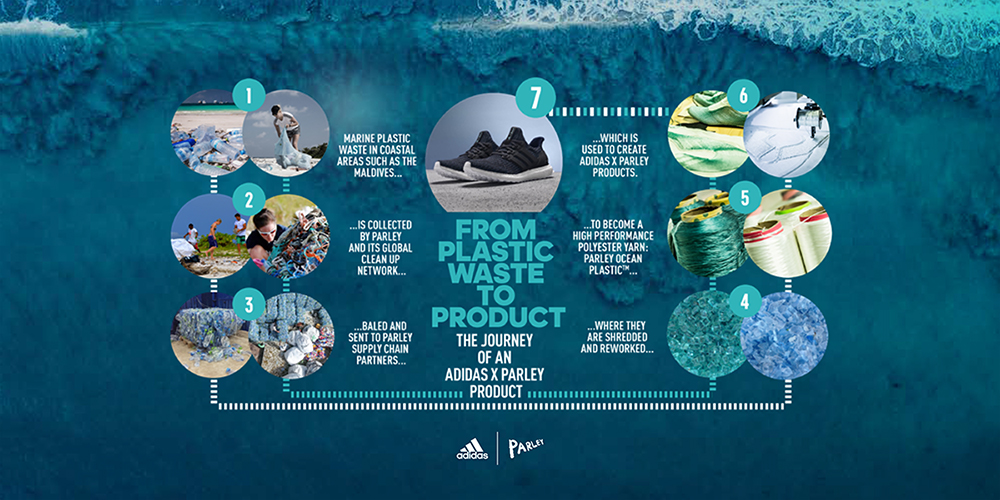Guest post by BriteBirch Collective member Konstantin Popovic, Founder and CEO of Impact3P
In an era of climate urgency, marketers must radically reimagine their strategies to align with planetary needs. This new marketing playbook outlines ten crucial pivots that blend sustainability with business success. From educating teams to redefining growth, these steps chart a course for marketing in a climate-conscious world. Here are 10 Radical Ways Marketers Must Pivot for the Planet.
1. Educate yourself, then engage and commit
The foundation of sustainable marketing begins here. Marketers cannot pretend any longer that sustainability is somebody else’s job. Colleagues in procurement, supply chain and of course in sustainability functions may be ahead, so marketers need to catch up in knowledge.
Once educated, it’s time to engage with all other departments to discuss what role marketing should actively play in the overall sustainability plan. It will be different for a consumer goods company vs a bank vs a tech company. Beyond internal engagement, everything will be easier if you also engage with peers, for example by joining Sustainable Brands or similar communities. Equipped with a better understanding, and an ecosystem of continuous learning, marketing then needs to dedicate willpower and brainpower to execute the following nine commitments.
2. Do. Not. Greenwash.
This is a marketing fundamental that is swiftly shifting from a reputation issue to a legal issue. In that sense, it is not optional and requires permanent attention. Again, education will help. There are plenty of ways to educate yourself, and this should be mandatory for the entire marketing department as well as their entire agency eco-system. The regulations will continue to get stricter for anything from misleading symbols and selective disclosure to jargon and vagueness. Check out this article for example on Canada’s new greenwashing law.
There is a new level of honesty, humility and transparency that goes along with the territory that marketers need to embrace.
3. Work with your R&D and innovation teams to develop sustainable product and service offerings
This is also called creating green growth – through developing and communicating products and services that lower your environmental footprint. A recent example would be the Cannes Grand Prix Winner for Creative Business Transformation “Phillips Refurb”. The pre-owned movement is growing rapidly across categories: pre-loved fashion, for example, grew 15 x faster than new fashion in 2023.
4. Partner with environmental organizations
Marketers can enhance their impact by partnering with non-profits and environmental organizations to support climate initiatives and spread awareness through joint campaigns and events. Pick a problem in the world that needs solving and is a great fit with your brand. Beyond lending support to these organizations, developing true, long lasting partnerships will create a win-win, like Adidas partnering with Parley for the Oceans that led to a new sports shoe series made with recycled plastic.
5. Leverage your enormous power to change behavior
Marketing is a craft of persuasion that has often been used for behavior change, including behavior change that serves a greater purpose. It’s critical for marketers to be fully aware of that power – with it comes responsibility: use it to help consumers make the transition towards a more sustainable lifestyle. Identify a consumer behavior that is both highly impactful and linked to your business and start incorporating it into your marketing, like Hellman’s mayonnaise is doing. Food Waste is a huge problem on multiple fronts including GHG emissions, and Hellman’s co-opted this issue. It’s a great case study and a real commitment.
6. Communicate your company’s sustainability progress
Many companies are making significant progress on their sustainability journey, some more than others. If you are leading, talk about it. If you are innovating, talk about it. If you are only starting out, still talk about it.
It is important to show the world that progress is happening here and now, it will inspire the laggards and make them want to join the movement. Think of all possible stakeholders, not just investors, particularly your employees, but also consumers. It goes without saying that key principles are honesty and transparency. The best-in-class example comes from Apple.
7. Decarbonize your media
A large chunk of marketing emissions is connected to digital media buying. Digital media can feel dematerialized, but it is not. The network connections and the data centers as well as the use of digital devices all consume an increasing amount of electricity. The massive interest in Generative AI is already exponentially increasing electricity and water usage. Start optimizing your digital advertising to reduce energy consumption, for example through improving ad targeting to reduce waste and minimizing the data load of digital ads. Partner with the digital platforms to use energy-efficient servers and tech providers powered by renewable energy. There are great resources and providers out there to help with this work.
8. Lower the environmental footprint of all other marketing activity
While media decarbonization is key, it is worthy to examine all other marketing activities one by one. Examine the carbon footprint of your website. Look to optimize performance and carbon intensity of your email marketing. Make sure that any events are organized through vendors who are serious about lowering emissions and waste (get inspired from Coldplay’s concert tour.) For any film production, especially for long form, make sure to green your production, including minimizing travel. In short: feel responsible for decreasing the negative impact across all your marketing activities.

9. Develop new KPIs, measure and improve
A Singaporean agency leader once said to me: “sustainability seems to be more about accounting than about marketing.” Yes and no.
Sustainability is indeed about measuring and managing impact, whether it is decreasing your negative impact (footprint) or increasing your positive impact (handprint). Marketing should work together with the sustainability, supply chain and procurement teams and develop the set of sustainability KPIs that they will sign up for. Are you tracking the life cycle impact of your products? Are you tracking your media emissions? What about sustainable attitudes and behaviors of your loyal consumers? The most relevant KPIs will be unique to your business and my strong recommendation here is to prioritize progress over perfection. The key is to get started.
10. Redefine the role of marketing in a climate-conscious world
This is the biggie: we must have the difficult conversation about the changing role of marketing. There are several meaty questions marketers need to ask themselves and debate internally, and with all their external partners: can we go on just focusing on “more”? More sales, more growth, more stuff, more consumption, more, more, more? Interestingly, according to research that is not how people envision a good life in the future. At least in the wealthy West, they are looking for meaning, for more time with loved ones and a deeper connection to nature. Not more stuff.
So, can marketing shift from quantity to quality, to value over volume? Can marketing be the driver of new business models and consumption patterns? To push it further, can marketing drive a new spirit of sufficiency? Sometimes also called “enoughness”, this is the countermovement to unlimited and over-consumption. How much living space do we need? How many cars? Do I need to buy new clothes every season? Can materially more modest lives make us happy? Questions consumers and marketers need to examine.
It may be time to reevaluate the purpose of marketing. It won’t be easy, but it will be worth it.

*************
Want to learn more about how BriteBirch Collective can support your business’ sustainability goals? Please reach out.




